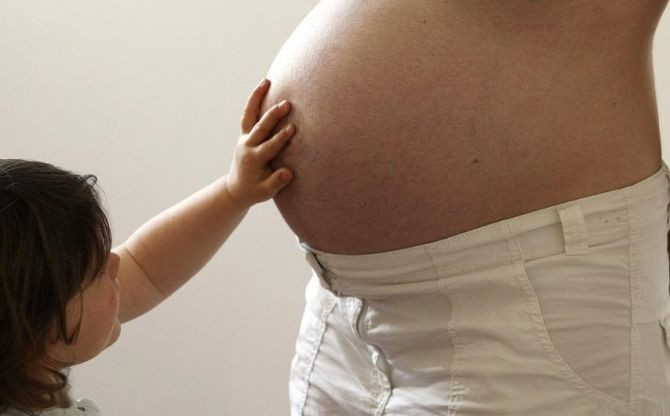Women Who Conceive While Dieting Increase Babies' Obesity and Diabetes Risk

Women who get pregnant while dieting are putting their child at risk of obesity or type 2 diabetes in later life, according to a new study.
In a study on sheep, scientists found that there were genetic and brain changes in fetal sheep that had mothers that had received less food at the time of conception or during early pregnancy. The findings show that the changes altered the DNA structure in the region of the newborn’s brain related to food intake and glucose levels.
Professor Anne White from the University of Manchester in northern England and her research team had looked at both twin pregnancies in sheep as well the pregnancies of ewes that had been given less food around the time the lamb was conceived.
Researchers suggest that the findings could also explain why twins are more likely to develop Type 2 diabetes in adulthood.
“We found that unborn twin lambs had changes in the structure of DNA in the region of the brain that regulates food intake and glucose that resulted in an increased chance of diabetes in adulthood,” White said in a news release. “Our findings provide a reason why twins are more likely to get diabetes but we have also shown that mothers who don’t have enough food around the time of conception may have a child who grows up with an increased risk of obesity.”
Researchers explained that these findings that dieting around the time a baby is conceived increases the risk of the newborn sheep to become obese in life is applicable to humans because they reveal a non-genetic or “epigenetic” way in which the DNA of offspring can be altered, which affects the way that genes can behave in later life.
White and her team believe that the latest findings could affect the advice health care providers give to women who are planning a family to reduce future health risks for their children.
"This study shows that expecting mothers have to walk a really fine line when it comes to diet and nutrition," said Gerald Weissmann, M.D., Editor-in-Chief of the Journal of the Federation of American Societies for Experimental Biology, where the study was published. "It also shows that epigenetics is the 'new genetics': both our DNA and the histones in which it is wrapped are susceptible to binge eating and dieting -- we are what our mothers ate."



























